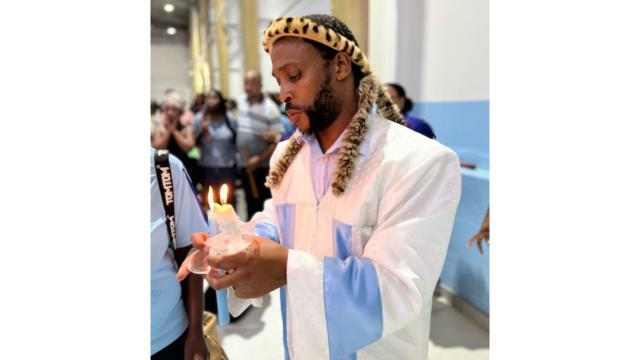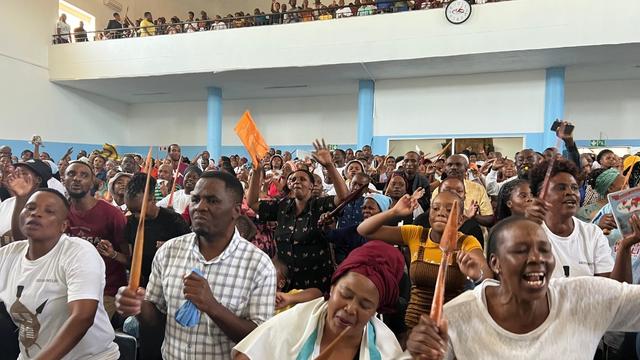Both countries experienced a difficult transition to democracy. In both countries, guaranteeing a real freedom of religion or belief proved to be problematic.
by Palesa Hloele*
*A paper presented at the webinar “How an Effective Democracy Can Protect Religious Liberty and Tai Ji Men,” co-organized by CESNUR and Human Rights Without Frontiers on June 30, 2023, International Day of Parliamentarianism.

Democracy is often viewed as positive, inspiring, and liberating, and in many previously colonised Afrikan countries, democracy was hailed as an opportunity to start all over again and be free from political and religious oppressors. However, as the Afrikan peoples made their transition into democracy, it soon dawned on them that, as South African theologian Dion Foster wrote, “the relationship between religion and the law is often complicated. It is sometimes conflicted. At the heart of the matter lies the tension between freedom, belief, association, and protection from abuse.”
The laws that were birthed by democracy have often segregated and, in many instances, oppressed spiritual and religious groups. For example, in South Africa, the “Prevention and Combating of Hate Crimes and Hate Speech Bill,” which was first introduced in 2018, sounded like a great progress. However, at closed scrutiny, it was found to have elements infringing on the constitutional religious rights of spiritual and religious groups. Citizens who live in spiritual and religious spaces can be arrested for saying something they believe to be true but is viewed by someone else as hate speech.
The democracy of South Africa today seems to be in favour of everyone except spiritual and religious groups. For instance, same-sex marriages in many South African spiritual and religious institutions are regarded as taboo and contradictory to their spiritual practises and religious teachings. Spiritual institutions and religious organisations often draft their own constitutions and codes of conduct, which indicate that same-sex marriages are not encouraged. However, according to the prevailing judicial interpretation of the South African Constitution, that is deemed as discriminatory and seen as an infringement on the rights of those individuals who want to freely practise their sexual preferences. At the same time, the fact is neglected that spiritual and religious institutions also have the right to adhere to their spiritual or religious moral codes.
There are other examples in South Africa that highlight the bitterness of democracy towards spiritual and religious institutions, such as the infamous Cultural, Religious, and Linguistic Commission (CRL), which was “established in order to protect and promote the cultural, religious, and linguistic communities’ rights.” However, the CRL commission operated outside of its mandate when it started investigating whether religion and spirituality benefit or harm South African communities. It infringed on the rights of spiritual and religious leaders by summoning them to appear before its commission and demanding the bank statements of their institutions.

Imboni/Igogo Dr. uZwi-Lezwe Radebe who is the leader and founder of The Revelation Spiritual Home (TRSH) in South Africa, was one of the leaders summoned by the CRL commission to produce the bank statements of his institution. Leaders of other religions, however, were not treated in the same way. This was against section 9 of the South African constitution, which states that “everyone is equal before the law and has the right to equal protection and benefit of the law.”
Such occurrences in a democratic country makes one wonder if there is a real difference between democracy and dictatorship.
The sweetness of our democracy for spiritual and religious groups may be proclaimed on paper, but it is fast waning away because laws that have been put in place to govern and protect spiritual and religious groups have been amended to oppress and segregate them. Sadly, if these spiritual and religious injustices are not nipped in the bud, there will be chaos in our societies. The fundamental reason is that we cannot shy away from the fact that spiritual and religious groups provide the moral compasses for humanity. Now more than ever, with the constant rise in depression and stress levels of individuals, due to many factors, including politics, humanity always seeks and finds solace in spiritual and religious institutions.
The spiritual and religious hardships experienced in South Africa by several religious and spiritual movements are very similar to those faced by the Tai Ji Men group in Taiwan. I participated in the CESNUR conference in Vilnius, Lithuania, earlier this month and was very moved to learn about the long persecution and tax harassment of Tai Ji Men. I also noted the similarity with the situation of my own country.

Both South Africa and Taiwan went through a difficult transition to democracy. In both countries, the new democratic institutions proclaimed that freedom of religion or belief will be guaranteed. In both countries, however, this did not completely happen, as demonstrated by the examples I have mentioned in South Africa and by the Tai Ji Men case in Taiwan. Although religious and spiritual organizations officially live under the protection of a democratic government, in fact they are still oppressed and segregated.

Democracy is no guarantee that cunning politicians and bureaucrats would refrain from trying to silence spiritual and religious groups. It is important for Tai Ji Men to be supported by friends and scholars from so many countries. Groups discriminated and harassed in South Africa also count on this support.
Source: Bitter Winter

